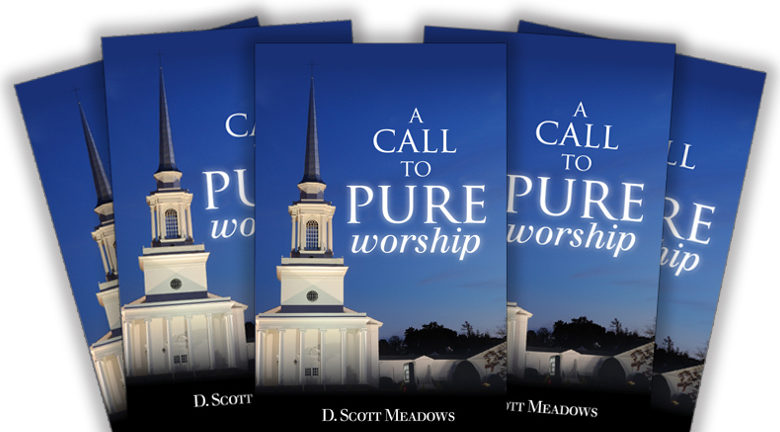Book Review: A Call to Pure Worship
by Pastor D. Scott Meadows
A Refreshing Read
Pastor Meadows created something I really needed in this explanation of the Regulative Principle of Worship, commonly referred to as the RPW: a book that is concise, clear, and direct.
Concise
The book is short so I wasn’t daunted by starting it. Sometimes big theology books are exciting, but my personality doesn’t let me start something I can’t finish. This small (but packed with information) guide is just what I needed to begin reading about the reformed doctrine of worship. I didn’t want to become an EXPERT; I wanted a GOOD START, and I got that.
Clarity
The book is clear: Pastor Meadows writes and speaks with a clarity that laymen can understand while still elevating the reader’s vocabulary and doctrine. I appreciate that he condescends for me and folks like me while not coming across as condescending. Whether you agree with his exegesis and conclusions or not, his clarity allows you to understand his perspective. At least if you leave disagreeing, you know what you disagree with. No squishiness here, just straight teaching and a pastoral tone.
Direct
This book is direct: No space is wasted on ancillary issues or “what-abouts?” A Call to Pure Worship leaves the reader with the responsibility to apply the lessons learned rather than trying to explain every implication of the biblical doctrine espoused therein. In so doing, Pastor Meadows avoids a form of legalism which would not be helpful while still addressing some obvious examples of impure worship in our day*. I recommend this to anyone looking to understand the reformed view of worship.
He’s polemical yet kind, academic yet relatable, and ultimately faithful to be biblical.
*My only critique may be that Pastor Meadows may have done the church well to name names in some cases where obvious references were made to false teachers. I thought to myself, what if someone didn’t understand the reference? Would they miss the criticism of that wolf? What about future generations who do not know to whom Meadows was referring? I think it may have been helpful to simply name those names or at least provide endnotes in those circumstances.







